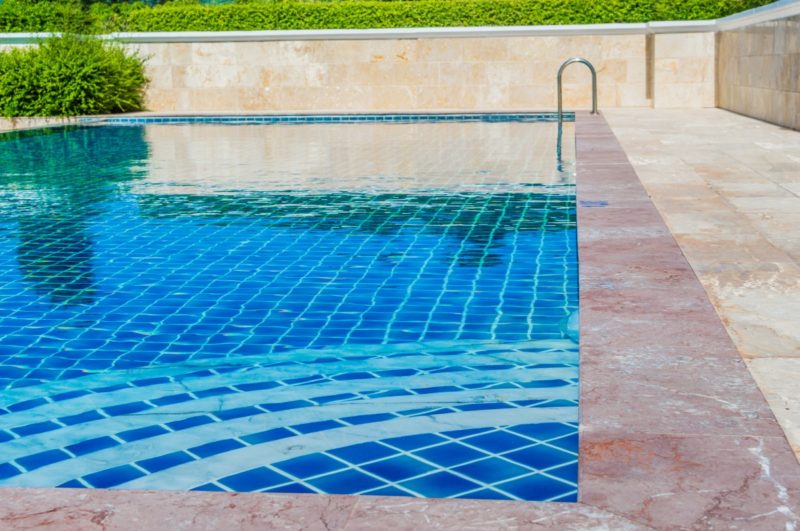Are you wondering why does my pool heater keep shutting off? You have to know that a pool heater is a piece of complex equipment. It is an essential component of a swimming pool that purifies the water. That is done by filtering the water passing through it to trap debris.
The heater is also the one that handles water circulation so that algae will not form and grow. But a problem that may occur to all pool heaters is their abrupt shutting off—tripping, the term used to refer to this situation. This issue can be caused by various reasons, which we will examine in this post. There is so much more to learn, so it’s best to dig into this article further!

Reasons Why Does Pool Heater Keep Shutting Off
In this section, let us discuss the most common causes for shutting off a pool heater. Read below and find out which most likely is the case with the unit you have at home. So, why does my pool heater keep shutting off?
#1. Insufficient voltage
It is the leading cause for the tripping off of a heater. This happens when the motor doesn’t receive the same amount of voltage. Some of the reasons that can result from this issue include improper wiring. This will make your heater shut off every ten seconds or so. A loose wire or lousy capacitor may also cause the insufficiency of voltage to the pool heater. If this is the case with your device, you have to contact a professional so that the pump’s wiring will be checked for any errors.
#2. Overheating pump
Manufacturers design the modern pool heaters to automatically shut off when running without heat, as it can cause the pump to overheat. This is made possible due to the switch for thermal overload. So if the heater keeps tripping off, the thermal overload switch has to be looked at and replaced if it is faulty. That switch may also be functioning correctly, and the pump itself is overheating. Call a technician and have your pool heater checked to figure out why the unit is overheating. It would help if you did not troubleshoot your pump when you lack electrical knowledge. You may also want to read about things to look for in an overheating pump.
#3. Impeller complications
The impeller is the spinning tool designed to pull the water out of the filter. If this malfunctions and does not spin, the heater will also stop functioning, producing a humming sound. So essentially, its malfunctioning will shut down the impeller. This happens when debris or any other items block the impeller, which will hinder the impeller movement. To fix this issue, remove your pool heater. Then, clear anything that makes it stuck. A professional is necessary when you can’t do it on your own.
#4. Too high energy consumption
Another cause for the failure of a pool heater is extremely high energy consumption. At times, some appliances are run more often as compared to others. In such a case, those appliances will take all current for it to function, which leaves too small for other appliances, including your heat pump. If that happens, your heat pump will not start. It can also cause it to abruptly shut off. For this issue, you need to balance the power consumption of the appliances you have at home so that the pool heater can pick up. You can also call the power company to report the power shortage if that is rather the case.
#5. Poor priming
Your pool heater may also not shut off. This is when there is insufficiency of water flow, but the pool heater feels that it has. In such a case, the heater requires priming. This is a process through which the water can flow through a filter before it gets to the pump. So those are the common issues that can make the heater pump trip off abruptly. If you have sufficient knowledge about electrical switches and appliances, you can troubleshoot the pool heater yourself.
Fixing Your Pool Heater
If you fix your unit correctly and maintain it adequately at the same time, then it can last for up to 10 years or longer. Not only that, but you will also be able to maximize its energy efficiency. When fixing the heater, especially those that involve its electrical connection, you need to get help from a licensed electrician.
Pool heaters can function outstandingly with maximum air circulation if placed somewhere that is clear without occlusions. When installing a heater, you need to consider the location where you intend to install your pool heater. Please put it on a flat surface near the filtration system and your pool. Ensure that the airflow in the spot you choose is limited. In approximate, the location is recommended to be about 25 feet from your pool. Again, if you are not sure about fixing your unit, it is best to call the professionals. You can also refer to the manual guide provided by the manufacturer.
It’s A Wrap!
When you wonder why does my pool heater keep shutting off, make sure to set all the necessary settings for your pool heater to operate correctly. Click on these links to read related articles; know how to plumb a pool heater and how does a pool heater work.
